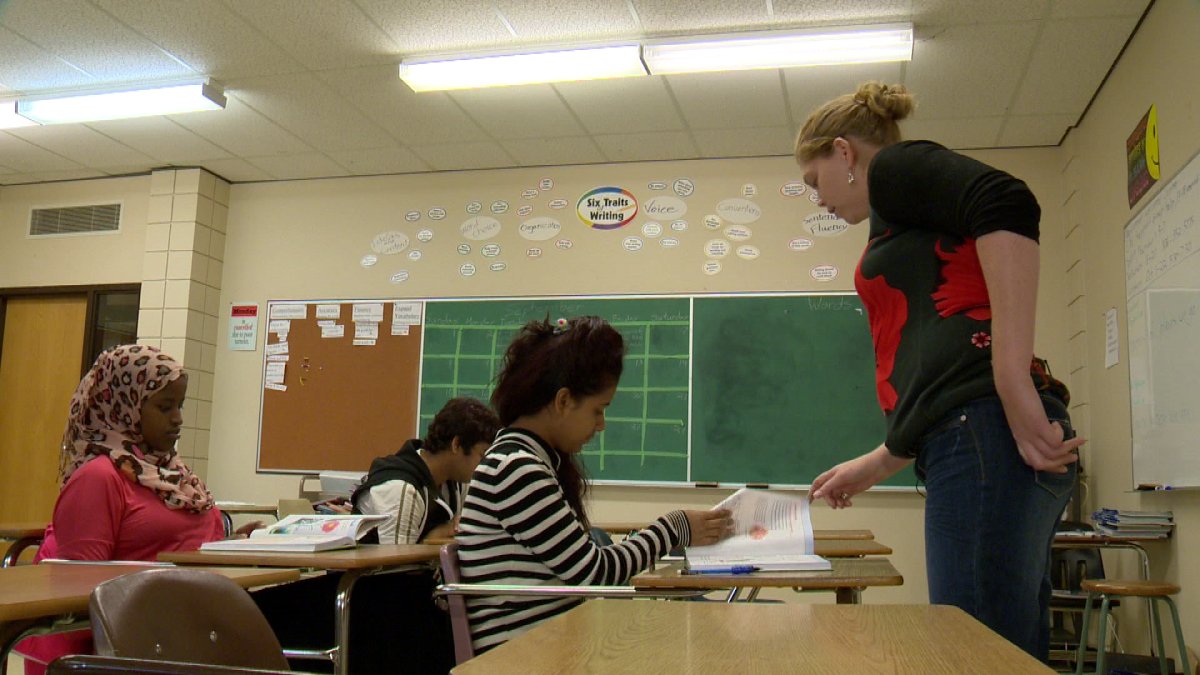REGINA – Ram Kafley and Indra Subedi sit at Johnson Collegiate and talk about their plans for the weekend. They both hail from Nepal, and speak in their native language. But when the bell rings it is clear their English is nothing to sneeze at either.

“When we speak Nepal, sometimes we use the English words,” said Kafley, a grade 12 student. “So it can be confusing.”
The two students are just two of 3,200 taking English as an Additional Language (EAL) classes through Regina Public School. Kafley and Indra just started a few years ago.
“Before it was so hard,” said Subedi, who is in grade 11. “I didn’t even know how to speak English and they didn’t understand what I was talking about.”
Sarah Scarff is their teacher at Johnson Collegiate where almost 20 per cent of the student population is taking EAL classes. She works with students who know some English and others who are starting from scratch.
“I teach them starting with just basic words, basic pictures, but trying to teach them content that they’ll need to know later on,” she said. “Science content, social studies content, how to find a job.”
In 2012, 11,177 permanent residents arrived in Saskatchewan, up from 8,955 in 2011. Many of them had kids in tow. EAL classes help students get up to speed so they can succeed in Canada. Their parents are in the same boat.
Deborah Hulston, director for the University of Regina’s English as a Second Language (ESL) program, said more and more permanent residents are looking for help with the language as they work towards a degree.
“They already have credentials in their own country,” Hulston said. “They’ve come to do an undergraduate degree in Canada so they can access the work force at the same level they were at in their country.”
The students say they are helping their parents learn English along with them, passing on the lessons they’ve learned in class. Grade 11 student Fatima Ahmed hails from Somalia and said the program is making a difference in helping her understand and speak the language.
“I feel more confident,” she explained. “I say, there are people willing to help you.”
In 2012-13, 9,632 grade one to 12 students in Saskatchewan received EAL support.




Comments